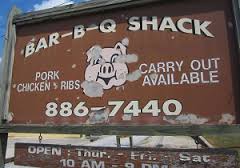Most E. coli outbreaks in the United States are linked to contaminated products that are distributed nationwide, such as the illnesses linked to Farm Rich frozen snack products. But some outbreaks have been linked to specific restaurants.
 There are currently two E. coli outbreaks associated with restaurants: the Bar-B-Q Shack outbreak in Toccoa, Georgia and the Coco Loco restaurant in College Station, Texas. In both of those current outbreaks, victims have been hospitalized and some have developed hemolytic uremic syndrome, a serious complication of an E. coli infection that can lead to kidney failure. Surprisingly, these are not the only E. coli restaurant outbreaks this year. Since January, there have been two other E. coli outbreaks associated with restaurants.
There are currently two E. coli outbreaks associated with restaurants: the Bar-B-Q Shack outbreak in Toccoa, Georgia and the Coco Loco restaurant in College Station, Texas. In both of those current outbreaks, victims have been hospitalized and some have developed hemolytic uremic syndrome, a serious complication of an E. coli infection that can lead to kidney failure. Surprisingly, these are not the only E. coli restaurant outbreaks this year. Since January, there have been two other E. coli outbreaks associated with restaurants.
In March 2013, an E. coli outbreak was linked to the Ambassel Restaurant and Bar located in Seattle, Washington. In that outbreak, the restaurant was closed after authorities found poor personal hygiene practices among the staff and equipment that was not properly sanitized.
In January 2013, there was an E. coli outbreak that was associated with the Longhorn Steakhouse in Cincinnati, Ohio. Five people were confirmed as victims of that outbreak. Contaminated leafy greens were suspected as the cause of those illnesses.
These outbreaks occur because of lapses in food safety rules and because contaminated food can be found anywhere. It’s difficult to protect yourself from these outbreaks, but by following good hygiene practices and avoiding risky foods such as undercooked ground beef and raw milk, you increase your odds of avoiding foodborne illness.




